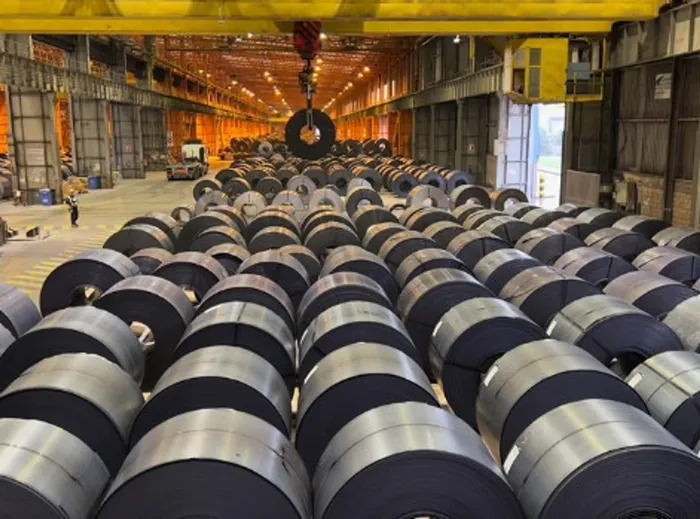ArcelorMittal defers long steel plant closure with R1.6bn State support
MANUFACTURING

At the end of November 2023, ArcelorMittal South Africa announced that they were looking at closing their longs business in Newcastle, identifying the scrap metal policies as one of the reasons for the closure.
Image: File
Banele Ginidza
ArcelorMittal South Africa (Amsa) will defer the closure of its loss-making long steel plants to August 31 after getting a R1.6 billion injection from the State-owned Industrial Development Corporation (IDC).
This will temoorarily stave off the retrenchment of 3 500 workers and keep operations running for at least six months.
In a statement on Monday, the steelmaker said that as part of the agreement, Amsa has committed to the continued operation of the Long Steel Business and retention of jobs during the deferral period and had also received a Temporary Employee Relief Scheme (TERS) grant to assist in funding employee costs, which will reduce the draw down required against the IDC facility.
"Based on engagements between the company and government, ArcelorMittal South Africa understands that a more market-related and less punitive Preferential Pricing System and export tax on scrap dispensation will be implemented soon, with safeguards imminent," Amsa said.
"These measures will help level the playing field in the steel industry to the benefit of the country."
The company had asked for lower electricity and freight rail tariffs, the imposition of import duties and the removal of a scrap metal export tax it says gives its competitors - recycling mini-mills - an unfair advantage.
The closure of the long-steel operations, which produce fencing material, rail, rods and bars used in the construction, mining and manufacturing sectors, has been expected since November 2023.
Amsa CEO Kobus Venter said while this arrangement represents a positive development, sustainable profitability remained the ultimate objective.
"The next six months will be crucial in determining whether the Long Steel Business can achieve the financial stability required for long-term viability. We are dedicated to this process and appreciate the support of all our partners in this endeavour," Venter said.
The Natinal Employers Association of South Africa (Neasa) said it was opposed to the Amsa bailout by the IDC as the company was not sustainable with old mills.
Neasa CEO Gerhard Papenfus said the continuing propping up of Amsa was at the expense of the downstream industry and taxpayers.
"Amsa has received several bailouts in recent months. None of this is good for the downstream industry, it will only drive prices higher. There will be a time when Amsa exists with government funding but has no customers because the downstream industry is crumbling," Papenfus said.
Meanwhile, Steel and Engineering Federation of Southern Africa (Seifsa) CEO, Michel Trentini said the move was welcome though it was merely kicking the can down the road for a further six months.
Trentini said part of the gains were that some sectors, including auto manufacturing, had a six month period to seek alternatives.
"This is a bit of light at the end of the tunnel but there is still a long road ahead. We can only be optimistic that the temporary reprieve will lead to a lasting solution," Trentini said.
"We cannot afford to lose Amsa, it is important but it has to be viable and competitive. We cannot have a primary steel producer disappear but a more positive outcome will have to be found."
BUSINESS REPORT
Related Topics: